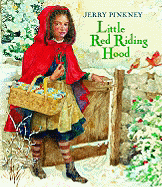Notes: PGW Keeps Name; Prison Bureau Reverses Library Policy
Farewell, poetically named Transition Vendor!
The bankruptcy court overseeing the AMS case has approved Perseus
Books Group's purchase of the PGW name, various intellectual property
rights and other assets, including PGW's office leases in Berkeley,
Calif., and New York City, where sales, marketing and administrative
staff are located. The West Coast staff of the former Avalon Publishing
Group, which Perseus bought earlier this year, will be moved into the
Berkeley PGW office in December.
In a statement, Susan Reich, president of PGW, said, "This is very
important news to both PGW employees and clients, all of whom hold the
PGW name in high regard."
---
The federal Bureau of Prisons has rescinded its
policy purging prison chapel libraries of books and other material not
on its list of approved titles, the New York Times
reported. The policy, subject of a class action lawsuit, had been
opposed in recent weeks by a range of groups after it received national
publicity.
In an e-mail message, the bureau said it "will begin immediately to
return to chapel libraries materials that were removed in June 2007,
with the exception of any publications that have been found to be
inappropriate, such as material that could be radicalizing or incite
violence. The review of all materials in chapel libraries will be
completed by the end of January 2008."
---
We offer straight-forward congratulations to Oblong Books & Music
of Millerton and Rhinebeck, N.Y., which for the second year in a row
has been chosen the Best Bookstore in the Hudson Valley by Hudson Valley Magazine.
The magazine wrote: "There's nothing quite like an independent
bookstore. The coziness, the quirkiness, the knowledge, and the
personality--these twin treasures have all that and more, including a
bounty of books and lots of local author events."
Owned by father and daughter Dick and Suzanna Hermans, Oblong opened
originally in Millerton in 1975. The second store, in Rhinebeck, opened
in 2001. Dick Hermans is the newly elected treasurer of the New England
Independent Booksellers Association.
---
Cabbages and Kings bookstore, Chatham, Mass., will close October 14,
just months shy of its silver anniversary, according to the Cape Cod Chronicle.
Owned by Bess and Jack Moye, the bookshop "has fallen victim to a
number of factors, including competition from on-line mega-stores such
as Amazon and Barnes and Noble, and an economy that has sputtered since
Sept. 11, 2001."
David Gessner, author of Soaring With Fidel,
said, "There will be a huge hole in the Cape literary community. I have
done a brunch for every one of my books and had planned on doing them
for each future book. Each time Jack and Bess made it a personal
celebration. It was a great way to interact with Cape people, and
Cabbages and Kings will be deeply missed."
---
Sisters Sherri Wright and Traci Giganti have expanded their
three-year-old bookstore, Book Crossing, Brunswick, Md., into
an apartment next door, the Frederick News Post
reported. The catalyst appears to have been a seminar at BEA in New
York on growing a business. "The presenter said it was best to expand in
the same area if you can," Giganti told the paper. "We were asking
ourselves 'Are we going to do this?' We were busting at the seams. You
can get stagnant under those conditions."
The new space includes a central children's area and the book nook,
where group events are held. The extra space also allows the store to
do more cross merchandising. For example, cookbooks are displayed
alongside gourmet foods, and copies of Wizardology and Dragonology are next to related puzzles.
---
Another case of excellent market timing?
In its first week on sale, The Age of Turbulence
by former Federal Reserve chairman Alan Greenspan has sold 129,000
copies, as measured by Nielsen BookScan (about 75% of overall sales),
leading the Wall Street Journal to speculate that book buyers were showing some "irrational exuberance."
"It exceeded our expectations, which were high," Antoinette Ercolano, v-p, trade book buying, at Barnes & Noble, told the Journal. "Given what's going on with the stock market and housing crisis, readers may be looking for answers."
---
A life-changing book list was featured in the Guardian,
where leading feminists Jessica Valenti, Natasha Walter, Rebecca
Walker, Julie Bindel, Ariel Levy and Joan Smith recalled the writers
who first introduced them to the women's movement.
---
Does Google judge a book by its title? The Australian suggested that some book titles are "chosen to make it easy to find in a database search."
The example cited was a study of globalization, nationalism and tribalism, which author Paul James had originally titled Global Savage. "When it appeared in bookshops, though, the book bore the rather pedestrian title Globalism, Nationalism and Tribalism: Bringing Theory Back In."
---
Effective January 1, Portfolio Books,
the U.K. sales and distribution company, will use National Book Network
International's warehouse and distribution facilities. With the change,
Portfolio is closing its warehouse in Perivale.
In a statement, Portfolio managing director David Lester said that the
"partnership enables us to focus more energy on driving sales at the
same time as ensuring the top quality distribution publishers expect
from us."
|





SHELFAWARENESS.1222.S1.BESTADSWEBINAR.gif)





SHELFAWARENESS.1222.T1.BESTADSWEBINAR.gif)
 One of Jerry Pinkney's many gifts is his ability to keep a child's sensibility front and center. In his retelling of this classic tale about the dangers of straying, the front endpapers convey the safe, snug home Little Red Riding Hood shares with her mother. Smoke rises from the chimney, tall birches extend far outside the full-bleed spread, and deer wander freely along the dirt roads. The title page shows the young heroine's mother (in a mirror image of Whistler's famous portrait of his mother), fashioning the girl's flame-colored cape while a cat plays with a spool of red thread. All of these details convey the love with which Mother extends her warning, that on her way to Grandmother's house, the girl must "be certain to go straight there." Pinkney answers the burning question of why the wolf that bars her way does not gobble down the girl right there in the woods (he "had a mind to eat her up at once--but he thought better of it when he heard the chop, chop of woodcutters working nearby"; and indeed, the woodcutters can be seen through an opening in the trees). The lupine villain devours Grandmother offstage, and readers see him licking his lips after swallowing Little Red Riding Hood whole. Even as the woodcutter delivers his fatal blow to the wolf ("with one stroke of his ax"), the only sign of violence is the shadow of the woodcutter's raised weapon, and a flurry of jays and cardinals fleeing the snow-covered firs outside of Grandmother's cozy cottage. The next scene shows Grandmother and granddaughter safely delivered from harm's way, the wolf so placid in death that he appears to be sleeping in the bed behind them. Pinkney makes the sense of relief so palpable that Grandmother's repetition of Mother's words ("Now, little miss, you be certain to go straight home") contains a whiff of humor. The closing endpapers depict a serene wood as the young heroine's red cape stands out in the wintry woods, her home just yards away, and evidence of a fire still warming the hearth. Despite the inevitable menace crucial to the story, Pinkney emphasizes the importance of family and leaves youngsters with the feeling that all is right with the world.--
One of Jerry Pinkney's many gifts is his ability to keep a child's sensibility front and center. In his retelling of this classic tale about the dangers of straying, the front endpapers convey the safe, snug home Little Red Riding Hood shares with her mother. Smoke rises from the chimney, tall birches extend far outside the full-bleed spread, and deer wander freely along the dirt roads. The title page shows the young heroine's mother (in a mirror image of Whistler's famous portrait of his mother), fashioning the girl's flame-colored cape while a cat plays with a spool of red thread. All of these details convey the love with which Mother extends her warning, that on her way to Grandmother's house, the girl must "be certain to go straight there." Pinkney answers the burning question of why the wolf that bars her way does not gobble down the girl right there in the woods (he "had a mind to eat her up at once--but he thought better of it when he heard the chop, chop of woodcutters working nearby"; and indeed, the woodcutters can be seen through an opening in the trees). The lupine villain devours Grandmother offstage, and readers see him licking his lips after swallowing Little Red Riding Hood whole. Even as the woodcutter delivers his fatal blow to the wolf ("with one stroke of his ax"), the only sign of violence is the shadow of the woodcutter's raised weapon, and a flurry of jays and cardinals fleeing the snow-covered firs outside of Grandmother's cozy cottage. The next scene shows Grandmother and granddaughter safely delivered from harm's way, the wolf so placid in death that he appears to be sleeping in the bed behind them. Pinkney makes the sense of relief so palpable that Grandmother's repetition of Mother's words ("Now, little miss, you be certain to go straight home") contains a whiff of humor. The closing endpapers depict a serene wood as the young heroine's red cape stands out in the wintry woods, her home just yards away, and evidence of a fire still warming the hearth. Despite the inevitable menace crucial to the story, Pinkney emphasizes the importance of family and leaves youngsters with the feeling that all is right with the world.--